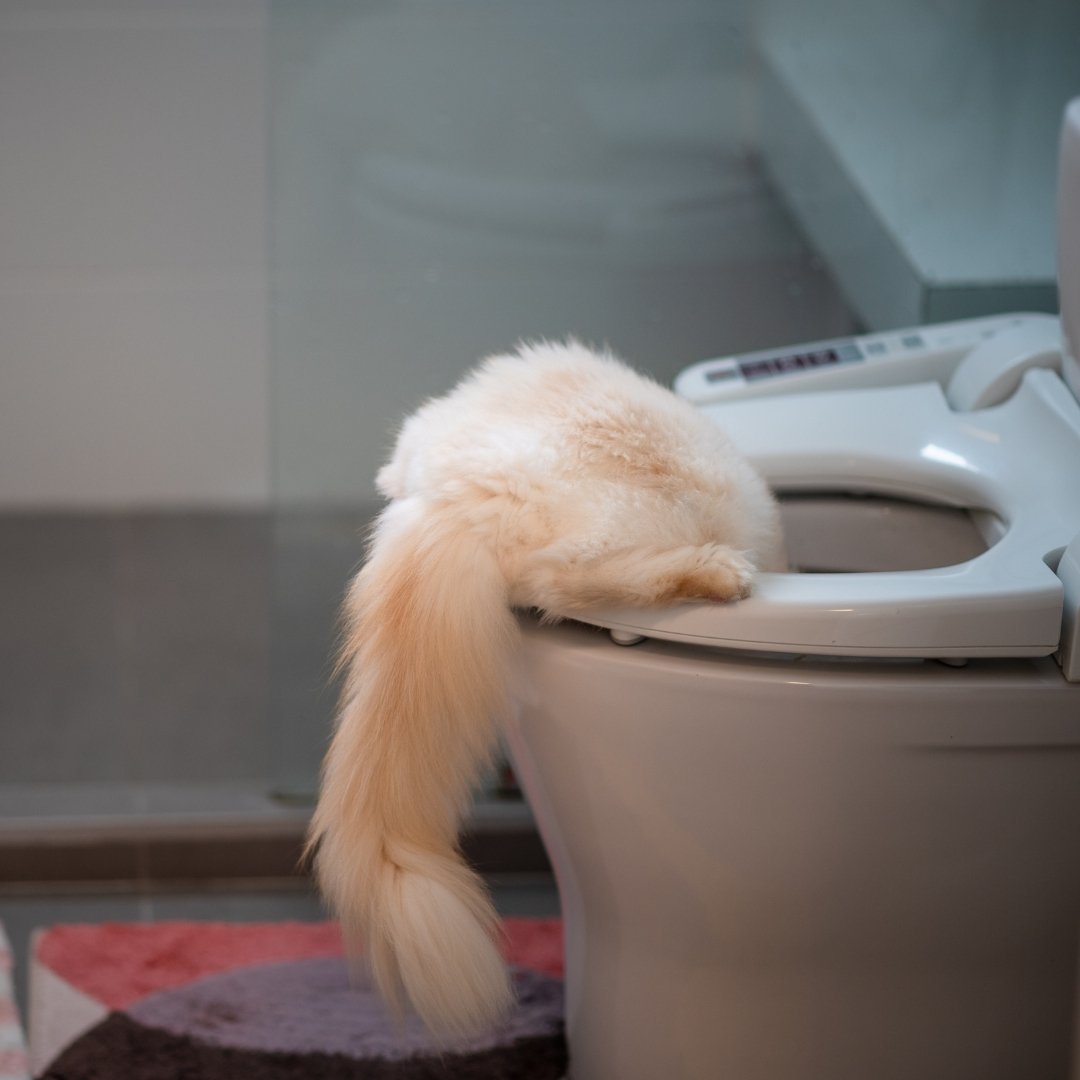Don't Flush Cat Poop Down Your Toilet - Maintain Your Home's Plumbing Integrity
Don't Flush Cat Poop Down Your Toilet - Maintain Your Home's Plumbing Integrity
Blog Article
The publisher is making several great annotation related to Can You Flush Cat Poop Down The Toilet? overall in this content which follows.

Introduction
As pet cat proprietors, it's necessary to bear in mind how we take care of our feline close friends' waste. While it may appear practical to flush cat poop down the commode, this method can have harmful consequences for both the setting and human health and wellness.
Alternatives to Flushing
Fortunately, there are more secure and much more responsible methods to get rid of pet cat poop. Think about the adhering to options:
1. Scoop and Dispose in Trash
One of the most common approach of getting rid of pet cat poop is to scoop it into a naturally degradable bag and toss it in the trash. Make sure to utilize a committed litter scoop and throw away the waste promptly.
2. Use Biodegradable Litter
Choose eco-friendly pet cat litter made from materials such as corn or wheat. These litters are environmentally friendly and can be safely thrown away in the garbage.
3. Hide in the Yard
If you have a lawn, think about burying feline waste in an assigned area far from vegetable gardens and water resources. Make sure to dig deep enough to stop contamination of groundwater.
4. Set Up a Pet Waste Disposal System
Buy a family pet waste disposal system especially developed for pet cat waste. These systems utilize enzymes to break down the waste, lowering odor and ecological effect.
Wellness Risks
In addition to ecological concerns, flushing pet cat waste can also position wellness risks to people. Pet cat feces might include Toxoplasma gondii, a bloodsucker that can create toxoplasmosis-- a possibly severe disease, specifically for pregnant women and individuals with weakened body immune systems.
Environmental Impact
Purging cat poop presents harmful pathogens and parasites into the supply of water, presenting a considerable danger to water environments. These pollutants can adversely affect marine life and compromise water quality.
Verdict
Liable family pet ownership extends past giving food and sanctuary-- it also involves correct waste administration. By refraining from purging feline poop down the toilet and going with alternate disposal methods, we can decrease our environmental impact and safeguard human wellness.
Why Can’t I Flush Cat Poop?
It Spreads a Parasite
Cats are frequently infected with a parasite called toxoplasma gondii. The parasite causes an infection called toxoplasmosis. It is usually harmless to cats. The parasite only uses cat poop as a host for its eggs. Otherwise, the cat’s immune system usually keeps the infection at low enough levels to maintain its own health. But it does not stop the develop of eggs. These eggs are tiny and surprisingly tough. They may survive for a year before they begin to grow. But that’s the problem.
Our wastewater system is not designed to deal with toxoplasmosis eggs. Instead, most eggs will flush from your toilet into sewers and wastewater management plants. After the sewage is treated for many other harmful things in it, it is typically released into local rivers, lakes, or oceans. Here, the toxoplasmosis eggs can find new hosts, including starfish, crabs, otters, and many other wildlife. For many, this is a significant risk to their health. Toxoplasmosis can also end up infecting water sources that are important for agriculture, which means our deer, pigs, and sheep can get infected too.
Is There Risk to Humans?
There can be a risk to human life from flushing cat poop down the toilet. If you do so, the parasites from your cat’s poop can end up in shellfish, game animals, or livestock. If this meat is then served raw or undercooked, the people who eat it can get sick.
In fact, according to the CDC, 40 million people in the United States are infected with toxoplasma gondii. They get it from exposure to infected seafood, or from some kind of cat poop contamination, like drinking from a stream that is contaminated or touching anything that has come into contact with cat poop. That includes just cleaning a cat litter box.
Most people who get infected with these parasites will not develop any symptoms. However, for pregnant women or for those with compromised immune systems, the parasite can cause severe health problems.
How to Handle Cat Poop
The best way to handle cat poop is actually to clean the box more often. The eggs that the parasite sheds will not become active until one to five days after the cat poops. That means that if you clean daily, you’re much less likely to come into direct contact with infectious eggs.
That said, always dispose of cat poop in the garbage and not down the toilet. Wash your hands before and after you clean the litter box, and bring the bag of poop right outside to your garbage bins.
https://trenchlesssolutionsusa.com/why-cant-i-flush-cat-poop/

Do you enjoy reading up on How to Dispose of Cat Poop and Litter Without Plastic Bags? Leave feedback down below. We'd be delighted to know your reactions about this blog post. Hoping that you visit us again later on. Sharing is nice. Helping others is fun. Thanks a lot for your time. Visit again soon.
Free Estimates Report this page